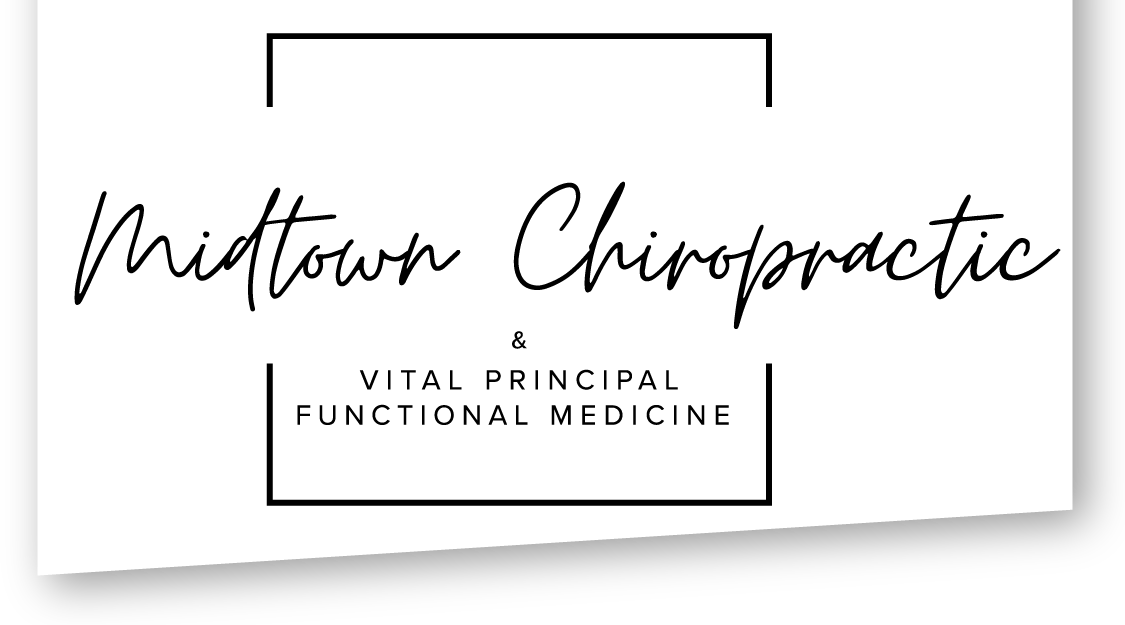Living with Brain Fog: Understanding and Overcoming the Struggle in Memphis TN

Having trouble remembering things, concentrating, or making decisions? Those with brain fog often report similar issues, it can feel like you're constantly walking around in a haze.
You might feel like you're moving through life in slow motion, with your mind and body constantly feeling drained and foggy. The frustration and confusion can leave you feeling isolated and alone, wondering if there's any hope for regaining mental clarity and feeling like yourself again. Learn more from our Memphis TN Chiropractor.
What is Brain Fog?
Brain fog is a term used to describe a range of cognitive symptoms that can impact memory, focus, and decision-making.
Symptoms that are often associated with brain fog include fatigue, difficulty concentrating, confusion, forgetfulness, and mood disturbances.
Root Causes of Brain Fog in Memphis TN
Brain fog can have multiple root causes, including:
- Nutrient deficiencies
- Chronic inflammation
- Sleep disturbances
- Impaired gut health
Nutrient deficiencies
Nutrient deficiencies can contribute to brain fog by affecting brain function and neurotransmitter production. Here are a few examples:
B vitamins: B vitamins, particularly vitamins B6, B9 (folate), and B12, are important for brain function and the production of neurotransmitters such as serotonin and dopamine. Deficiencies in these vitamins have been linked to cognitive impairment and brain fog.
Iron: Iron is essential for the production of hemoglobin, a protein that carries oxygen in the blood. Iron deficiency anemia can lead to reduced oxygen delivery to the brain, which can lead to feelings of a foggy brain.
Vitamin D: Vitamin D plays a role in the production of brain-derived neurotrophic factor (BDNF), a protein that is important for the growth and survival of neurons in the brain. Low vitamin D levels have been shown to be associated with reduced BDNF levels, which may contribute to cognitive impairment and brain fog.
Omega-3 fatty acids: Omega-3s play a role in reducing inflammation in the brain. Inflammation is thought to contribute to many health problems, including cognitive impairment and brain fog. Omega-3s have been shown to have anti-inflammatory effects in the body, which may help reduce inflammation in the brain.
Magnesium: Magnesium plays a role in the regulation of neurotransmitters, including serotonin and dopamine, which are important for mood and cognitive function. Low magnesium levels have been shown to be associated with reduced activity of these neurotransmitters.
Chronic inflammation
Inflammation is a natural response of the body's immune system to injury or infection. Inflammation triggers the release of cytokines and other inflammatory markers, which help to fight off pathogens and repair damaged tissues. However, when inflammation becomes chronic, it can have negative effects on physical and mental health, including the development of brain fog.
Chronic inflammation has been linked to cognitive impairment and brain fog in several ways. Here are a few examples:
Increased oxidative stress: Chronic inflammation can lead to increased production of reactive oxygen species (ROS), which are highly reactive molecules that can damage cells and tissues, including those in the brain. This damage can contribute to cognitive impairment and brain fog.
Disrupted blood-brain barrier: The blood-brain barrier is a specialized membrane that helps to protect the brain from harmful substances in the bloodstream. Chronic inflammation can disrupt the blood-brain barrier, allowing inflammatory molecules to enter the brain and trigger cognitive impairment and brain fog.
Reduced neuroplasticity: Neuroplasticity refers to the brain's ability to adapt and change in response to new experiences. Chronic inflammation has been shown to reduce neuroplasticity, which can contribute to cognitive impairment and brain fog.
Sleep disturbances
Sleep disturbances, including poor sleep quality, insomnia, and sleep apnea, can contribute to the development of brain fog. Sleep is important for a variety of bodily processes, including brain function, memory consolidation, and the regulation of mood and emotion. When sleep is disrupted, these processes can be impaired, leading to cognitive impairment and brain fog.
Here are a few ways in which sleep disturbances can contribute to brain fog:
Disrupted circadian rhythms: The body's circadian rhythms help to regulate the sleep-wake cycle, as well as many other bodily processes. Disrupted circadian rhythms, such as those caused by shift work or irregular sleep schedules, can lead to reduced sleep quality and contribute to brain fog.
Reduced oxygen delivery to the brain: Sleep apnea, a condition characterized by episodes of interrupted breathing during sleep, can lead to reduced oxygen delivery to the brain. This can contribute to cognitive impairment and brain fog.
Reduced memory consolidation: Sleep is important for the consolidation of memories, a process in which the brain strengthens and integrates new information into existing neural networks. Poor sleep quality can impair memory consolidation, leading to cognitive impairment and brain fog.
Increased stress response: Sleep disturbances can increase the body's stress response, leading to the release of stress hormones such as cortisol. Chronic activation of the stress response can have negative effects on physical and mental health.
Impaired gut health
Gut health can play a significant role in brain function, and disruptions in gut health have been linked to cognitive impairment and brain fog. Here are a few ways in which gut health can contribute to brain fog:
Dysbiosis: Dysbiosis refers to an imbalance in the bacteria and other microorganisms that live in the digestive tract. Dysbiosis has been linked to increased inflammation in the gut, which can contribute to inflammation in other parts of the body, including the brain. Inflammation is thought to play a role in the development of brain fog.
Leaky gut: Leaky gut is a condition in which the lining of the digestive tract becomes more permeable than normal, allowing toxins, bacteria, and other harmful substances to enter the bloodstream. This can trigger inflammation and immune system activation (see more about inflammation above).
Nutrient deficiencies: The gut plays a key role in the absorption of nutrients from food. Dysbiosis and other disruptions in gut health can impair nutrient absorption, leading to nutrient deficiencies that can contribute to brain fog (see above).
Production of neurotransmitters: The gut is also involved in the production of neurotransmitters, including serotonin and dopamine, which are important for mood and cognitive function. Dysbiosis and other disruptions in gut health can lead to reduced production of these neurotransmitters, which can contribute to cognitive impairment and brain fog.
Brain Fog Relief
Want to begin to think clearly again? Here are 10 tips that can help reduce brain fog:
Improve diet: Focus on eating a whole food, nutrient-dense diet to support cognitive function.
Hydrate: Dehydration can contribute to brain fog, so make sure you're drinking enough water throughout the day.
Get enough sleep: Aim for 7-8 hours of sleep per night to support cognitive function.
Reduce stress: Incorporate stress-reducing techniques such as mindfulness meditation, deep breathing, or yoga.
Exercise: Regular exercise can improve blood flow to the brain and support cognitive function.
Manage underlying health conditions: Work with a healthcare practitioner to address underlying health conditions that may be contributing to brain fog.
Supplement with nutrients: Consider supplementing with nutrients such as B vitamins, omega-3 fatty acids, and magnesium if deficient.
Prioritize gut health: Focus on gut health by incorporating probiotic-rich foods and reducing inflammatory foods.
Reduce exposure to toxins: Toxins such as heavy metals and mold can contribute to brain fog, so reduce exposure as much as possible.
Limit screen time: Excessive screen time can impact cognitive function, so consider taking breaks or limiting time spent in front of screens.
Brain fog can be a frustrating and isolating experience, but it's important to remember that there are many factors that can contribute to this symptom. By understanding the root causes of brain fog and implementing lifestyle changes and supportive therapies, you can regain mental clarity and feel like yourself again. If you're struggling with brain fog, I encourage you to explore how functional medicine can help you overcome this challenge.
Monday
9:30am - 1:00pm
2:30pm - 6:00pm
Tuesday
2:00pm - 6:00pm
Wednesday
8:00am - 1:00pm
2:30pm - 6:00pm
Thursday
9:30am - 1:00pm
2:30pm - 6:00pm
Friday
8:00am - 1:00pm
Saturday & Sunday
Closed
Monday
9:30am - 1:00pm
2:30pm - 6:00pm
Tuesday
2:00pm - 6:00pm
Wednesday
8:00am - 1:00pm
Thursday
9:30am - 1:00pm
2:30pm - 6:00pm
Friday
Closed
Saturday & Sunday
Closed
Monday
9:30am - 1:00pm
2:30pm - 6:00pm
Tuesday
2:00pm - 6:00pm
Wednesday
9:30am - 1:00pm
2:30pm - 6:00pm
Thursday
Closed
Friday
8:00am - 1:00pm
Saturday & Sunday
Closed
Midtown Chiropractic
204 N Evergreen St
Memphis, TN 38112


